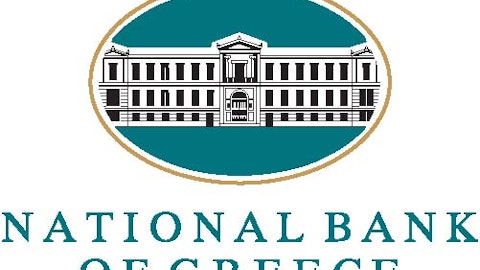
The Epicenter
Greece was pretty much the epicenter of the financial earthquake that rocked the euro region. Although a simplistic explanation, what basically happened was that the euro allowed financially weak countries to hide behind stronger ones. Instead of using this to solidify their own economies, most of the weaker countries went on a debt funded spending spree. That debt eventually caught up with the weaker countries. Greece was the first to go down.
Bloomberg news recently highlighted some of the positives going on in the region, but it also noted the negatives. For example, while growth in the euro region is expected to be weak, it isn’t contracting as quickly as it once was. It is, in fact, expected to push back ever so slightly into the positive next year. This isn’t exactly great news, but it suggests a stabilization of the overall situation. On the negative side, the overall number mixes strong countries like Germany with weaker countries like Greece, Italy, and Spain.
So while it’s probably too soon to call the all clear, there are signs that the region is working through its problems.
National Bank of Greece (NBG)
Since Greece was at the center of the problems that helped drag the euro down, National Bank of Greece (ADR) (NYSE:NBG)’s recently approved deal to buy competitor Eurobank seems to be a positive indication that the excesses in that market are being worked through. The combination will make National Bank the largest player in Greece on virtually every important metric.
That said, every merger faces integration risks and this one won’t be any different. In fact, bringing two banks together can be particularly difficult because of the sensitive nature of the information they have. No to mention the fact that they are dealing with customers’ money.
Trading at slightly more than a dollar a share, National Bank of Greece (ADR) (NYSE:NBG) is more of a speculation than an investment. If the current transaction helps to resolve the problems in the country and its banking industry, however, there is obvious upside. Maybe the bank won’t see the $60 a share that it traded at in 2008, but an advance into even the mid-single digits would be a huge increase from where the shares trade today.
Not the Only One
National Bank of Greece isn’t the only bank in a troubled country looking to simplify and consolidate. Grupo Financero Sntdr Mxco SAB de CV ADR (NYSE:BSMX) is also working along the same lines in Spain. Interestingly, Spain has a size benefit that Greece lacks. This gives the country something of a too big to fail safety net. That’s a big benefit for Spanish banks, which are feeling a big pinch from the financial led recession.
Groupo Santander is consolidating the operations of two subsidiaries. This should help to simplify the bank’s structure and ease the process of solving Spain’s bigger problems by reducing the players involved. The move comes at a financial cost to Santander, but the market seemed to view the deal positively.
One thing to keep in mind with Groupo Santander is its international diversification. It operates in the United Kingdom, Europe, Central America, and South America. While owning banks in Europe may not sound like such a great thing, it diversifies the bank away from one of the region’s weakest markets. Moreover, the exposure to Central and South America puts the bank in the heart of a growing region. So, this is not just a rebound play, but also one where growth could easily take center stage.
On to Italy
Italy, like Spain, is another large European Union member that would be hard to let fail. In this market, UniCredit (NASDAQOTH:UNCFF) has begun to streamline its operations to save money and simplify its business. It is bringing together UniCredit S.p.A. of UniCredit Audit S.C.p.A., UniCredit Logistics S.r.l., UniCredit Merchant S.p.A. and UniManagement S.C.r.l. That’s a mouthful of entities, but the outcome should be a more streamlined business. Like the other two companies above, it should be something of a cleansing transaction. Will it turn the Italian banking industry around, no. But it shows that things are moving in the right direction.
Only Aggressive Investors Need Apply
Getting involved in euro zone banks is not something that conservative investors should remotely consider. However, aggressive investors might find it an interesting way to play a European turnaround. None of the above companies should become core holding, but they might be appropriate for fun money
The article Healing Transactions At Troubled European Banks originally appeared on Fool.com and is written by Reuben Gregg Brewer.
Copyright © 1995 – 2013 The Motley Fool, LLC. All rights reserved. The Motley Fool has a disclosure policy.



